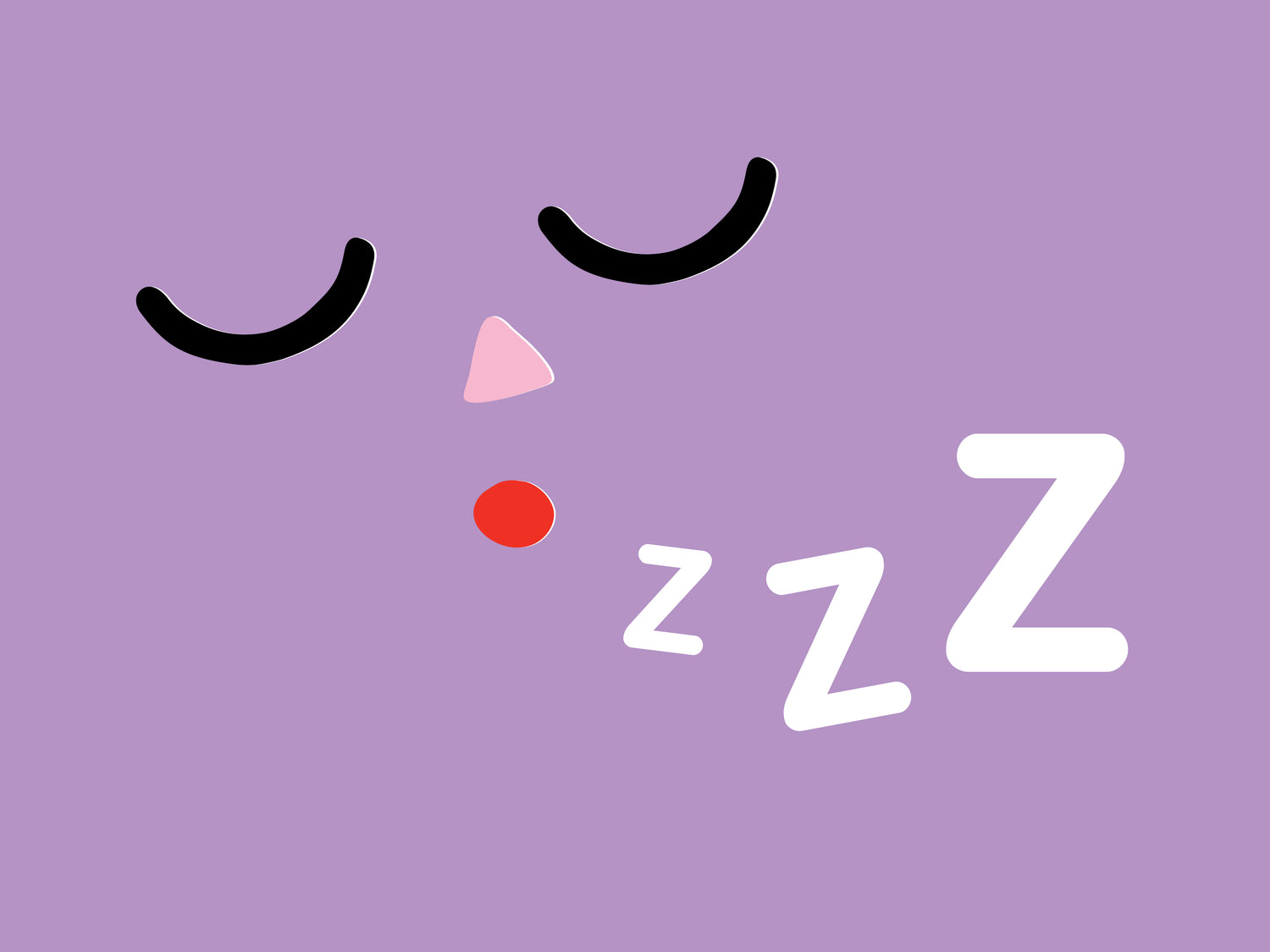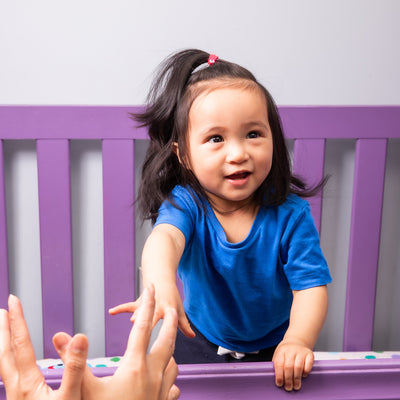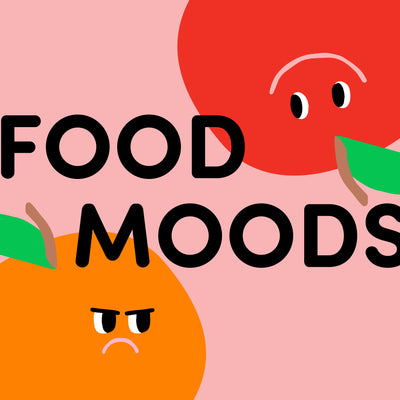If you have a kid that goes right to bed at 7pm and immediately drifts off into a glorious reinvigorating slumber, click out of this now. And go! Enjoy being well-rested, and sprightly, and a little bit smug. But if you have a kid who is not quite so fond of bedtime, here are some simple, useful, easy-to-action-when-tired tips that might help you snatch a better snooze.

1. Find a bedtime that’s just right.
What if we told you there was a magical bedtime that made every kid nod off and sleep a solid 12 hours? (Ha! WE WISH.) Bedtimes are not a one-size-fits-all thing. Sorry. And the right time for your sleepy little sod to hit the sack will depend on them. Generally, toddlers need between 10-14 hours of sleep (including naps), but some will be early risers, and others will be exceptional sleep-er-in-erers. So start by figuring out your kid’s wake-up time and work back from there. If you send them to bed too early, they’re likely to get distracted (by books! crinkly pillowcases! random thoughts about slugs!) and take longer to sleep. If you send them to bed too late, they might become stubborn, overtired and even tricker to shush. Once you’ve got a magical time that works, give yourself a fist bump! But also, keep it consistent. Try not to vary when they go to bed or or wake-up by more than 30 minutes. This’ll help set their internal clock.
2. Create a consistent evening routine.
A simple, relaxing nighttime routine has loads of benefits for tiny humans. It makes things consistent, it calms everyone right down, and it signals that HEY, IT’S ALMOST TIME FOR BED. Getting into the habit of doing all your pre-snoozy stuff (like bath, brushing teeth, story time and goodnight kisses) in the same order, will make sure everyone knows what’s coming next. Really get the nightly wind-down down, and you might find that your little rascal starts automatically getting sleepy at the start of their routine. Huzzah.
3. Banish stress and nighttime fears.
If you’re a parent, you know about cortisol. (It’s the ‘stress’ hormone). When cortisol levels are high, your little one’s body isn’t able to relax and go to sleep. Which is why it’s important to keep your before-bed activities calm, the lights dim and the environment quiet (with, maybe, the exception of an insanely soothing acoustic-y, folksy playlist). If your kid gets frightened by the dark, try not to dismiss their bedtime fears. (Shadow beasts are very scary.) If a little reassurance isn’t enough, try assigning a special toy to stand guard overnight, or let them take charge, spraying a monster repeller (‘room spray’) wherever nighttime nuisances are known to lurk, like under beds, along windows and in dark cupboards.
4. Keep their bedroom cool (but not cold).
Even grown-ups sleep better in a cool room. That’s because your body’s temperature naturally decreases during sleep, and a room that’s too hot or too cold can affect that temperature drop and disrupt those precious deep zzzzs. A safe sleeping environment for kids is between 18°C and 22°C. And while it’s not essential to keep the room temperature controlled all night long, it’s important to dress your little one appropriately. (Red Nose has special advice for new babies.) Consider layering their PJs and bedding, so they can easily remove or add pieces as needed throughout the night.
5. Focus on relaxation instead of sleep.
One moment you put your rascal to bed, the next minute they’re in the living room asking whether fish can fart. (The answer is, kinda.) Just like us, kids can have trouble shutting their brains off as their head hits the pillow. So rather than insisting that bedtime means sleep time, try focusing on relaxation instead. It might be helpful to put on a soft playlist or night-time meditation that they can listen to as they lie in bed, or keep a low light on and let them read or look at their favourite books until they drift off. (But getting out of bed is not allowed!)
6. Give yourself a break if it all goes to shit.
TimTams help. So does knowing that you are not alone. There are approximately 4,594,532,975 other parents trying desperately to shush their kids to sleep, too. Including this guy.





Comments